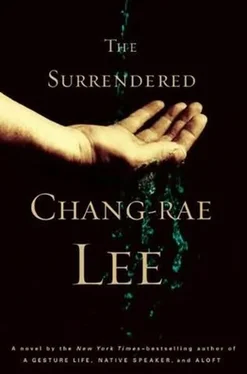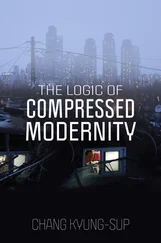“It happened soon after Mrs. Tanner and I were married.” He spoke to them as if in confidence, as though they were all his intimates and he was confessing to them. “Our life together was just beginning. But after I became deathly ill, I felt powerless and insignificant. I was afraid. I was no longer the arrogant doctor who had always believed in the boundless possibility and reach of the human mind. I realized my conceits and accepted at that moment not only death but the grace of an Almighty Spirit. I refused further treatment and bid my parents and my dear wife, Sylvie, goodbye. I was no longer fearful, only sad for leaving my beloved wife and parents and for being so willfully blind. I shut my eyes and fell into what all believed was my final sleep, but two days later I awoke, my fever broken. My limbs were weak, but gone were the terrible shaking and pain. But this was not what struck me. It was my mind, yes, but altogether recast, my thoughts suddenly as clear as the water of the deepest, purest spring. I knew then that I had been living only half a life, and thus not a life at all, that all of my worldly knowledge and expertise and efforts were useful and valuable but only as a living devotion to the mercy of God and His Eternal Love. I had been delivered, as I hope you will be delivered, into a glorious new life.”
As he spoke, Hector caught his wife’s eye a few times but she looked away whenever he did, her gaze returning straight to her husband as if to a beacon shining out from a dark shoreline. Tanner clearly was aware of him as well but didn’t break at all in his speaking or gestures, even after Hector turned to go to his room. He had been a vessel for plenty of religious talk throughout his life, and in recent months from Hong as well (the good reverend would come and share a whiskey with him and read the Gospels aloud), and although he was not yet a believer, he was becoming a willing subject himself, someone who had indeed begun ceding his life, too, if arranging a very different surrender.
For the first week, Hector steered clear of the new reverend and his wife; he worked on the immediate grounds in the early mornings and during congregations and meals, saving any fieldwork for when they might be about. He couldn’t help but pause, as everyone did, whenever he caught a glimpse of Sylvie Tanner, her hair as it fell against the grave paleness of her shoulders glowing as vibrantly as anything he had seen since being in this desolated country. She was near forty, the creases at her eyes and mouth just now insinuating themselves for good, the first white wisps ashing the hair at her temples. There was the tiniest downward lag at the corners of her eyes, which he thought gave her an almost Egyptian sadness. The children adored her, the girls especially, floating about her like hungry bees around a tall, straight flower. She had introduced herself briefly to him as he ate alone after everyone else had finished, but he felt Tanner’s obvious disdain and didn’t allow himself to approach or speak to her. She seemed too mature and complete and happy, and this easy perfection, besides her loveliness, made him all the more shy and grimy-feeling and compelled him to drive the Willys into Seoul each night and enact the depravities Tanner saw in him.
One morning Hector was scraping old paint from the side of the main dormitory to ready it for a new coat when Reverend Tanner suddenly appeared and surprised him, asking if he could help. Hector nodded and handed him a scraper and they worked together for an hour. Tanner had spoken to him several times about work projects and such but it was the first instance that they’d stood this close to each other for more than a brief moment. Tanner didn’t pretend that he was solely there to work, immediately asking Hector when he had arrived in Korea and where he had been during the war. He asked if he’d seen action and Hector told him only that he’d been in Graves Registration. Without prompting, Tanner spoke about himself, saying he was from Buffalo but had studied medicine and later divinity in Chicago and was now based in the Seattle offices of the Northwestern Synod of the Presbyterian Church. When he found out where Hector was from, his eyes lit up.
“I was actually near there once, as a boy. I swam with my cousins in the Erie Canal. When they opened a lock upstream we jumped off one of the bridges and rode the current down and then hitched a ride on whatever boat was heading back. You must have done that a thousand times.”
“I didn’t swim much,” Hector said. “I never liked the water.”
“I remember now. That was some of the foulest water I’ve ever seen. All sorts of things floating in it.”
“Yeah,” Hector said, seeing again the blackness inside his father’s gaping mouth. “That’s right.”
“Will you be going back?”
“To Ilion? No.”
“Then to somewhere else in the States?”
“I don’t know.”
“You must be having a time of it here in Korea,” Tanner said. “Like most of the servicemen.”
“I’m not in the service anymore.”
“Yes, I know that. I suppose I meant all you young men.”
Hector didn’t respond, keeping focused on the task. Tanner didn’t press him and they worked steadily with their scrapers on the long section of wall, working from opposite ends and moving toward the center. Soon enough flecks of white paint dusted them from head to toe, the two men looking as if they’d shoveled out an ash pit. Tanner took to the work with ease. He was still wearing his minister’s gray shirt and white collar and in the gaining heat he perspired heavily. But he wasn’t laboring. He was athletic and rangy and he clearly welcomed the renewed physical activity after his extended travels; back in Seattle he sculled his one-man shell every morning on Lake Union. He was twenty years older than Hector-some thinning showed in an otherwise full head of hair-but there was otherwise an animation and sturdiness about his constitution that was not unlike the younger man’s, though unlike Hector’s, Tanner’s was drawn as much from the force of his will as from an innate, brute vigor: his obviously steel self-belief primary still, despite the story of his miraculous recovery.
Tanner reached the midpoint of the wall even before Hector, whose efforts ticked by as always at a constant, unremitting meter. Tanner stepped back, removing his wire spectacles and wiping his brow with his sleeve.
“From your surname I assume your family is Catholic?”
“My dad. My mother was lapsed. They’re both gone now.”
“I’m sorry to hear that.”
“Yeah.”
“And what about you? Do you consider yourself Catholic?”
“I’m nothing.”
“Surely you must have been christened.”
Hector nodded.
“I was just curious. It’s not important, but I suppose I was wondering how much time you’d spent in church.”
“Why’s that?”
“Again, it’s not material, but I want to ask if you would be able to construct a chapel for us. The outdoor pavilion is perfectly fine now, but I don’t see how it will be useful come winter. Had Reverend Hong any such plans, about what to do?”
“If he did, he didn’t tell me about them.”
“I’m glad we’re talking about it, then. I was thinking that perhaps you could build a small chapel, just one big enough to house all of us.”
“I doubt I could get the lumber to build anything but a shed.”
“What about converting a space?”
“There’s really nothing that would work, except maybe the main classroom.”
“No, that won’t do,” Tanner said. “I feel strongly that if possible we should have a chapel that’s just a chapel. Where we solely hold prayer services and read Scripture and sing our hymns. Nothing else, no classes or eating. It doesn’t have to look churchlike. A room with benches is all we would require. Nothing large. The closer we are, the better.”
Читать дальше











